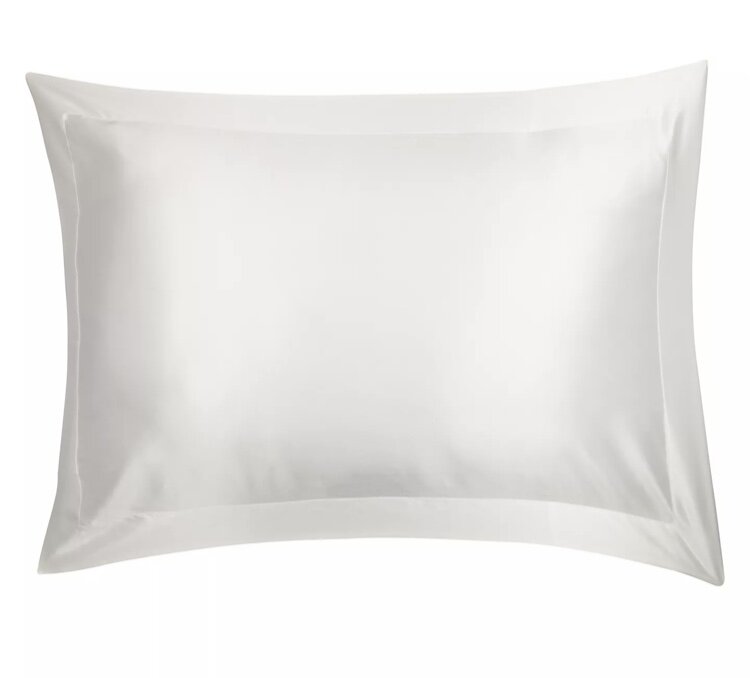Can’t sleep? These expert tips will help you drift off blissfully ahead of World Sleep Day
Image: @jenatkinhair
If you’re having trouble sleeping right now, you’re not alone. But it’s important to make sure that you’re getting a good quality sleep every night. Eight hours of uninterrupted snoozing can sound like wishful thinking if you’re currently far from it, with nuisances like overactive minds, snoring, unsuitable surroundings, and the ever-brightening mornings all playing a part in preventing that elusive forty winks.
New Town Dental Care’s Dr Derek Swan, who’s also member of the British Society of Dental Sleep Medicine and close working partner of the Edinburgh Royal Infirmary’s Department of Sleep Medicine, tells us that missing out on sleep, for any reason, can be physically and emotionally damaging, causing excessive daytime sleepiness, loss of concentration, headaches and poor memory, as well as an increased risk of depression.
But thankfully, there are ways to make sure you don’t miss out on a good night’s kip. And seeing as March 19th marks World Sleep Day, we thought it was the perfect time to consult with the experts and round up our seven top tips to help you enjoy a solid sleep, every night.
Purchase the right pillow
The right support can make all the difference to how well you sleep, and there are so many on the market today. If you (or your partner!) snores, try an anti-snore pillow which offers firm support to help keep the airways open, or if you suffer with sensitivities, an anti-allergy pillow can help keep you restful all night long. Memory foam can help support those with neck and back pains, whilst body pillows are a lifesaver for expectant mothers.
When it comes to pillowcases silk offers health and beauty benefits - it proactively helps to retain moisture in your skin and hair, helping minimise wrinkles and prevents "bed head" frizz and static.
The bestselling John Lewis & Partners Silk Oxford Pillowcase
£45.00
Spritz a pillow spray to encourage deep sleep
Team Hood swear by spritzing the pillows and bed linen with a soothing mist pre-bedtime. We love This Works’ Deep Sleep Pillow Spray, which uses a blend of lavender, vetiver and camomile to calm both your body and mind and help to encourage a soft slip into a relaxing slumber. Or for those who don’t love lavender try Crabtree & Evelyn Stars in the Night Room Mist instead with notes of sandalwood and orange blossom.
Try a weighted blanket
Are you an anxious sleeper? If so, you might find that a weighted blanket can help soothe you to sleep quicker and more easily. Recent studies have shown that a weighted blanket helps to soothe restless sleepers or insomniacs, as the pressure from a heavy comforter can trick the body into thinking you’re being cuddled or swaddled, working to calm an overanxious mind and encouraging your body to drift into a sleepier and calmer state, and keep you there until your alarm rings.
Use a sunrise clock
Yes, they’re amazing at helping to wake you up on dark winter mornings, but sunrise alarm clocks can also help you to drift off too. We swear by the Lumie Bodyclock Starter Clock, which has a ‘sundown’ function too; simply set your alarm for the morning and turn on the clock’s light to settle down with a book in bed. The clock will gradually reduce the light in the room over a 30-minute period, lulling you gently into darkness and encouraging a natural slide into ‘sleep mode’.
Prevent snoring, the medical way
If you or your partner is a chronic snorer, you’ll likely have tried all sorts of remedies already – are chin straps and nose strips ringing a bell? Dr Derek Swan tells us that snoring is one of the main causes of disrupted sleep, as he explains: “Snoring can be as loud as 50 to 100 decibels, but it only takes a noise of 40 decibels to disrupt sleep, meaning that if you or your partner snore, even for just a little while, the chances are that it will wake you up.”
So, what can be done? Dr Derek works with the Department of Sleep Medicine to create bespoke mandibular advancement devices – small devices which look like gum shields, designed to be worn overnight to prevent snoring. Each device is made to fit each patient perfectly, working to push their chin forward, keeping the airways open and preventing snoring, effectively transforming bedtime for both bed partners. It’s an investment, but if snoring is disrupting your sleep on a nightly basis, it’s one you might want to consider making.
Have a cup of tea before bed
No, not Scottish Breakfast. Swap your classic cuppa for a mug of soothing ‘sleepy tea’ – we particularly like Heath & Heather’s Organic Night Time Tea, which is caffeine-free and packed with sleep-enhancing herbs and ingredients. Sipping on a cup of this calming camomile and spearmint brew is a great way to wind down and promote a natural sense of sleepiness, leaving you to head off to bed feeling suitably relaxed and ready for a solid eight hours.
Shut out external nuisances
Does that streetlight outside your window keep you wide awake, or is a neighbour’s barking dog or stamping feet stopping you from getting your shut-eye? Invest in two key products to block out external nuisances that prevent you from snoozing off: a set of great earplugs, and a comfortable eye mask. Deep Sleeps’ super-comfortable ear plugs block out up to 30 decibels of noise, helping you to drift off, oblivious to outside noise, whilst the Beauty Sleeper silk eye mask allows you to sleep in complete darkness (plus, the silk is great for skin!).





